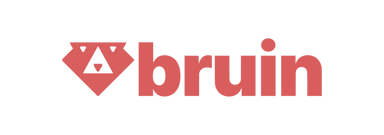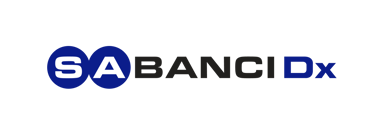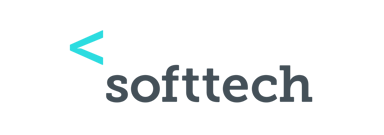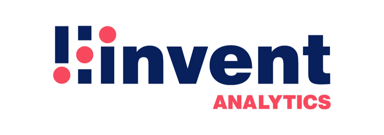HRIS
HRIS (Human Resources Information System) is software that human resources professionals use to collect, store, conduct, and process information about employees in an organization. With HRIS programs, which are a combination of HR and HR software, HR teams organize employee data such as benefits, payroll, training history, and performance reviews. Thanks to this digitally managed data, the HR process and management of employee information becomes faster and more automated.
Why is HRIS Important for Companies?
The human resources department has a lot of responsibilities that must be followed systematically. The workload of employees in this department increases even more in their daily work due to various situations such as high turnover and dispersed teams with a large number of people. At this point you can use HRIS for as follows:
1) To produce a more organized work
Working in an orderly and organized manner is very important for human HR employees who have to deal with a large number of people and their work-related issues. A job that a human resources employee does more successfully than before is valuable for companies. Thanks to this contribution, the company can be better organized with the information management style of its employee base.
2) Having a more straightforward and streamlined workflow
Just being more organized is not enough in business life. Instead of being busy with the same tasks every day, you should be able to focus on your work easily. This opportunity is possible by optimizing your work. Therefore, finding an HRIS that suits your company's goals is crucial to automating your work.
3) Building a more transparent working environment
Those who work in the field of human resources have many problems. One of the most important problems is the need to keep everyone informed at the same level. However, it is challenging while handling work in an orderly manner in a crowded work environment. A successful HRIS provides a single source of information for everything that touches human resources. This technology reduces your chances of encountering complex situations.
4) Reducing expenses
By eliminating manual processes with robust HRIS software, data accuracy and efficiency become much better. In this way, HRIS can help minimize the company's administrative costs.
What are the Types of HRIS Software?
We can divide HRIS software into three main categories. The fundamental classification is as follows:
1) Human Resources Information Systems (HRIS)
HRIS software basically stores information that is of interest to the HR department, such as personal information about employees, salaries and benefits, policies, and procedures. This technology keeps the information in a single location in the cloud or on-premises.
2) Human Resources Management Systems (HRMS)
HRMS software operates on HRIS by adding automation and management-related components, including features such as onboarding schedules, time tracking, and performance review processes.
3) Human Capital Management (HCM)
HCM is a more comprehensive array of the tools mentioned above, with extra tools emphasized on macro-level operations and people strategy, such as employee engagement, advancement in career, and productivity as a whole.
What are the Areas where HRIS can be Managed?
There are two main areas where you can manage HRIS software. These are as follows:
1) On-premise based
HRIS software, formerly on-premise, operated on the company's technical infrastructure. On-site local computers are used to store everything. That works best for single-location enterprises like restaurants, garages, petrol stations, and the like that conduct a large portion of their business in a physical setting without a pressing need for internet connectivity. Another factor to take into account is data privacy; some companies might choose to keep their data offline.
2) Cloud-based
These days, cloud-based systems are nearly universal, which facilitates updates, among other benefits. That is suitable for companies that do asynchronous, multi-location online processes.
What are the Important Features of HRIS?
1) Accelerating recruitment and onboarding processes
It is one of the most basic functions of HRIS. Many HRIS software include an integrated and ready-made recruitment software or ATS (applicant tracking system) that helps optimize recruitment. Additionally, an HRIS has onboarding tools including the ability to gather personal data from employees and examine policies and procedures online with e-signing abilities.
2) Providing convenience in payroll management
Payroll management is one of the most significant human resources processes. This situation ensures that all the employees in a company receive their payments on time. A successful HRIS has the ability to automatically make payments and track financial status after processing salary information. In addition, it regularly monitors salaries, which vary depending on raise status and internal mobility.
3) Understanding and managing people analytics
People analytics is a crucial HRIS system component and essential to HR management. That will help your company detect gaps and possibilities in the employee base and support various initiatives such as internal growth, retention, and DEI (Diversity, Equity, and Inclusion).
People analytics also helps you track employee turnover rate, which is a critical concept for your company and thus enables you to make accurate analysis. We can briefly answer the question “What is employee turnover?” as the total number of workers leaving a company during a specific period. Meaning of employee turnover refers to those who choose to leave voluntarily, as well as involuntary turnover, such as being "fired" or "laid off".
With people analytics, you can analyze employee turnover in detail and thus find out why employees leave their jobs. That allows you to develop various employee retention strategies to prevent you from losing more productive employees in your company. With people analytics, which is a feature of a good HRIS, the question “How do you calculate employee turnover?” is no longer a significant problem.
4) Keeping track of time and attendance correctly
Whether you are paying hourly, preferring contracted workers, or tracking hours for overtime pay, you want to know you are on the right path regarding attendance and tracking hours. A successful HRIS you will use for your company will provide you with maximum support at this critical point of HR management.
5) Managing benefits management from a single point
A strong HRIS technology supports managing benefits, a vital responsibility for the human resources department. The HR professional is obliged to carry out this task in more than one process, such as the onboarding process and benefits selection. Therefore, you can manage your company's benefits from a single point of view with an HRIS that is suitable for your company and has this feature.
6) A portal service that informs employees
Employees frequently contact the human resources department and management with many requests for information and updates, such as whether it's about sick days or time off and a change in benefits. A successful and functional HRIS can provide employees with their own access gateway, allowing them to obtain the information they require quickly.
Conclusion
In this content, you have learned detailed information about HRIS (Human Resources Information System). You also discovered how successful HRIS software can help a company increase its employee productivity, brand value and overall profit.
Although many organizations are using HRIS even now, this software is expected to reach many more users in the future. The future of HRIS software looks very promising, as this software will become much more user-friendly thanks to the rapid development of AI (artificial intelligence).
Choosing the best one for your company is as significant as using HRIS. Visit Hirex now to get information on this subject in the future and to check out our other content!
Contents
Get a demo
- Quickly find top candidates with smart application management
- Improve team collaboration using built-in communication and workflows
- Offer a smooth candidate experience to strengthen your employer brand
- Count on 24/7 support for a hassle-free hiring process
- Quickly find top candidates with smart application management
- Improve team collaboration using built-in communication and workflows
- Offer a smooth candidate experience to strengthen your employer brand
- Count on 24/7 support for a hassle-free hiring process
"We truly felt the speed difference. Everything was smoother, and candidate feedback was much more positive. It made our jobs easier."

Trusted by 100+ teams
Get Informed,F.A.Q.
Revolutionize your hiring process with our transformative Applicant Tracking System (ATS.)
Suggested keywords
What is Cultural Fit?
Let's talk numbers - 89% of employers put cultural fit at the top of their hiring checklist. Pretty huge. But wait a second... what exactly does cultural fit mean in today's fast-moving workplace?The ...
Employee NPS Benchmarks
An Employee NPS benchmark is basically a way to see how your company’s employee satisfaction stacks up against others. It helps turn your eNPS score into something useful by giving it context. 📌You'r...
Salary Benchmarking
Salary benchmarking is basically figuring out if what you're paying your team makes sense compared to what others are offering for similar roles. It’s like checking the going rate before you buy somet...















